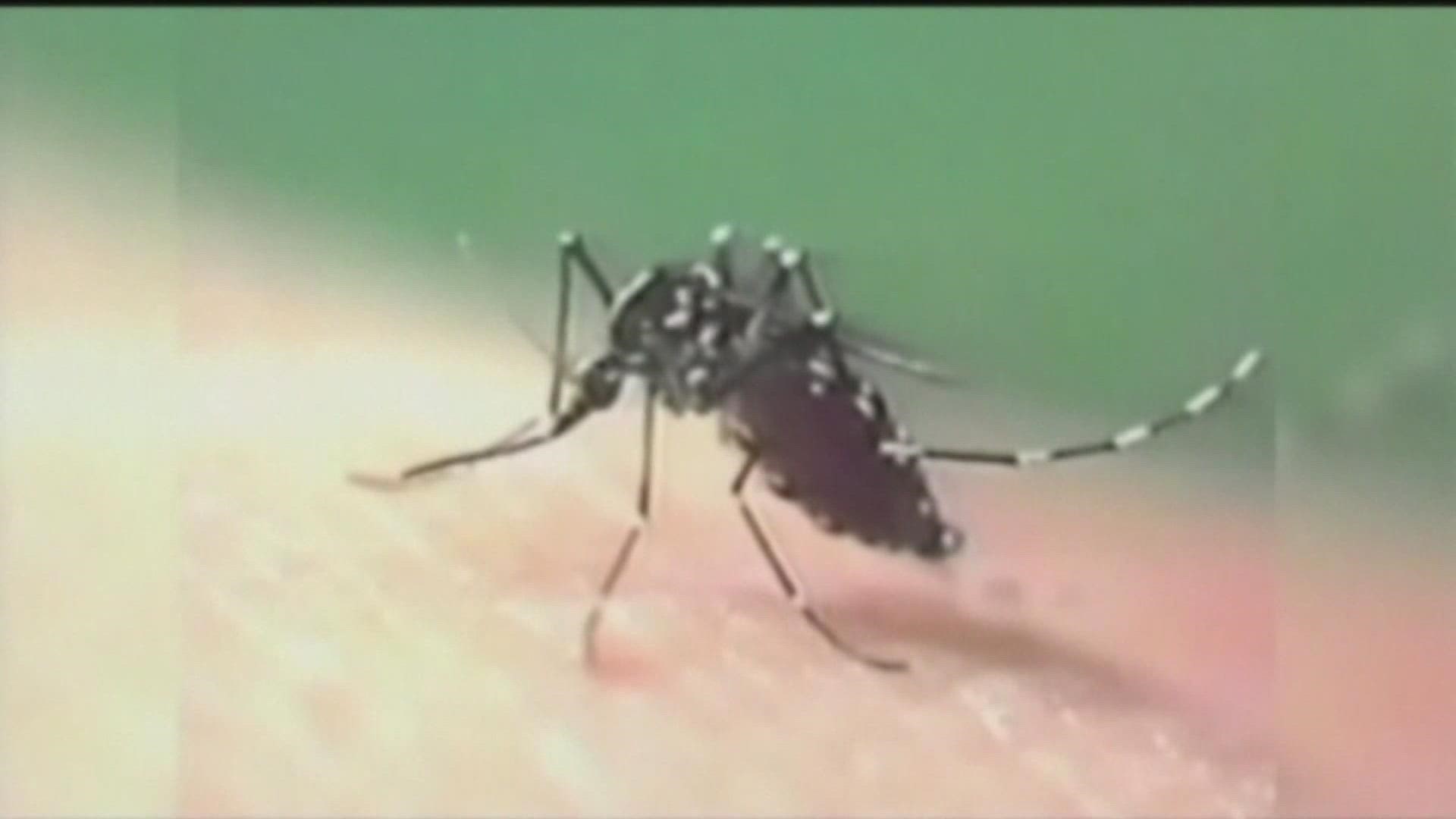BOISE, Idaho — Southwest District Health (SWDH) has confirmed its first case of human West Nile Virus (WNV) for 2022, in Canyon County.
WNV is typically spread to humans and animals through bites from infected mosquitos, but does not spread from person to person. Many who get infected may not show symptoms, but severe cases can occur, especially in individuals over the age of 60.
The virus has the potential to become very serious, and includes symptoms of fever, headaches, body aches, fatigue, nausea, vomiting, and swollen lymph glands or skin rash that occurs 2 to 14 days after a bite from an infected mosquito.
"About one in 150 people infected with WNV develop severe illness such as encephalitis (inflammation of the brain), or meningitis (inflammation of the linings of the brain and spinal cord)," Ricky Bowman, Program Manager for Southwest District Health said. "These more severe infections are marked by a rapid onset of a high fever, headache, neck stiffness, body aches, disorientation, and tremors, and may require hospitalization."
Community members should take extra precautions when spending time in areas with WNV-carrying mosquitoes, and ensure that any animals traveling along are properly prepared.
Canyon County officials have already enacted measures to lessen the number of infected mosquitos in the area.
"Surveillance and control measures throughout the county have already been increased in response to several previous West Nile virus positive mosquito samples," Jim Lunders, Director of Canyon County Mosquito Abatement District, said.
There are also several steps Idahoans can take to reduce the likelihood that they get bitten, including:
- Avoid outdoor activities between dawn and dusk when mosquitoes are most active and tend to feed.
- Wear long sleeves, pants, and loose-fitting clothing if you are outside between dawn and dusk.
- Use insect repellent containing DEET, Oil of Lemon Eucalyptus, IR3535 or Picaridin (follow manufacturers' instructions) when outside. In addition, certain products containing permethrin are recommended for use on clothing, shoes, bed nets, and camping gear.
- Remove mosquito breeding sites by draining standing water from flowerpots, buckets, barrels, pool covers, and wading pools. Water held for seven days can produce mosquitoes.
- Avoid over irrigating your lawns, gardens, and pastures
- Change the water in pet dishes and replace the water in bird baths and watering troughs at least twice weekly.
- Drill holes in tire swings or old tires so water drains out.
- Vaccinate your horses against West Nile virus.
- Notify the District at 208-461-8633 if you have a site that is too large to be eliminated so it can be properly treated.
Domesticated animals like dogs and cats are not usually affected by WNV, but horses and certain bird species can become severely ill from the virus.
There are no vaccines available for humans, but there are vaccines for horses and health officials strongly recommend people get their horses vaccinated.
For more information on WNV, visit:
Watch more Local News:
See the latest news from around the Treasure Valley and the Gem State in our YouTube playlist:
Download the KTVB mobile app to get breaking news, weather and important stories at your fingertips.

